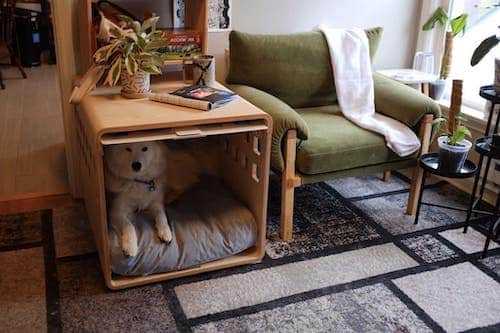Introducing a pet into your life is a joyful and touching event. One thing never changes, regardless of your level of experience with animals: your furry, feathered, or scaly friend is totally dependent on you for their health, happiness, and general well-being.
Giving your pet the proper care involves more than simply feeding and brushing; it also entails establishing a secure, stimulating environment in which they may flourish. To ensure your pet has a long, healthy, and happy life, we'll go over important pet care procedures in this guide that every responsible owner should be aware of.
1. Understand Your Pet’s Specific Needs
Every pet is unique, and their care requirements vary based on species, breed, age, and lifestyle. A Labrador puppy will have very different needs from a senior cat or a parrot.
Key Considerations:
- Breed-specific traits (e.g., energy levels, grooming requirements)
- Activity needs for physical and mental stimulation
- Dietary preferences or restrictions
- Age-specific care (puppies/kittens vs. senior pets)
Before bringing any animal home, invest time in researching their characteristics and care needs. This foundational knowledge will help you tailor your care routine and prevent common mistakes.
2. Prioritize a Balanced Diet and Clean Water
Proper nutrition is fundamental to your pet’s health. A well-balanced, species-appropriate diet helps maintain energy levels, supports immunity, and improves longevity.
Nutrition Best Practices:
- Feed age- and breed-specific pet food (puppy, adult, senior, etc.)
- Avoid harmful human foods (like chocolate, onions, grapes)
- Use measured portions to prevent obesity
- Provide fresh water daily and clean the bowl regularly
Consult your vet to determine the right food and portion size, especially if your pet has allergies, weight issues, or digestive concerns.

3. Schedule Routine Vet Check-Ups
Regular veterinary visits are crucial, even if your pet seems healthy. Many health conditions develop silently and can only be detected early through exams or screenings.
Veterinary Care Checklist:
- Annual wellness exams
- Core and optional vaccinations
- Parasite prevention (fleas, ticks, worms)
- Dental exams and cleanings
- Spaying/neutering advice
Developing a relationship with your vet ensures you have a trusted source of guidance throughout your pet’s life stages.
4. Maintain Proper Hygiene and Grooming
When it comes to pets and animals, grooming isn’t just about keeping them cute and clean—it plays a critical role in their overall health. Regular grooming helps prevent skin infections, controls shedding, and allows you to catch early signs of illness like lumps, rashes, or parasites.
Basic Grooming Tips:
- Brush your pet’s coat regularly to prevent tangles, mats, and excess hair shedding
- Trim nails to avoid pain, joint issues, or accidental scratches
- Clean ears gently to reduce the risk of wax buildup and infections
- Bathe your pet using species-appropriate and skin-friendly shampoos
- Brush their teeth several times a week with pet-safe toothpaste to prevent dental disease
For pet owners who find grooming difficult or time-consuming, a visit to a professional groomer can be a stress-free solution—especially for long-haired or high-maintenance breeds.
At Savingsays.de, we help pet lovers care smarter by featuring exclusive deals and helpful tips related to pet essentials, grooming tools, and trusted products for all kinds of pets and animals. Whether you're shopping for dog shampoo, a pet hairbrush, or grooming kits, we help you save while keeping your companion happy and healthy.
5. Create a Safe and Comfortable Living Space
Whether your pet lives indoors, outdoors, or both, their environment should be secure, clean, and comforting. Pet-proof your home to prevent accidents and injuries.
Environment Essentials:
- Remove toxic plants and substances from reach
- Use pet gates or barriers as needed
- Provide a cozy, quiet place to sleep
- Ensure temperature control for sensitive breeds
- Regularly clean litter boxes, cages, or bedding
Your home should be a sanctuary, not a stressor. A calm, hazard-free space helps your pet feel secure and reduces behavioral issues.

6. Keep Your Pet Mentally and Physically Stimulated
Boredom can lead to anxiety and destructive behavior. Pets need enrichment, just like humans. Mental and physical activity helps regulate energy, improve obedience, and prevent depression.
Enrichment Ideas:
- Daily walks and playtime (especially for dogs)
- Puzzle toys or treat-dispensing feeders
- Training sessions with new commands or tricks
- Interaction with other pets or safe outdoor exploration
- Perches and climbing towers for cats
Rotating toys and introducing new experiences keeps your pet’s mind sharp and spirits high.
7. Encourage Healthy Social Behavior
Socialization helps your pet feel confident and relaxed around people, other animals, and new environments. It's especially important during the early months but can be done at any age.
Socialization Tips:
- Gradually introduce your pet to new sights, sounds, and smells
- Organize short, supervised meetings with friendly animals
- Reward calm, curious behavior with treats or praise
- Avoid overstimulation or forcing interactions
Proper socialization builds trust, reduces fear and aggression, and fosters a more adaptable pet.
8. Use Positive Reinforcement for Training
Training isn’t just about obedience—it’s about communication, safety, and harmony. Teaching your pet basic commands and boundaries makes daily life easier and more enjoyable.
Training Basics:
- Use positive reinforcement (treats, praise, play)
- Be consistent with cues and routines
- Keep sessions short and fun
- Avoid harsh punishment or yelling
- Focus on patience and progress, not perfection
Well-trained pets are more confident, manageable, and comfortable in various situations—from vet visits to travel.
9. Be Prepared for Emergencies
Emergencies happen when we least expect them. Preparing ahead can prevent panic and ensure a quick response during critical moments.
Emergency Readiness:
- Know the location of the nearest 24/7 animal hospital
- Have a basic pet first-aid kit at home and in your car
- Save your vet’s and an emergency contact’s number
- Learn pet CPR and first-aid basics
- Understand symptoms of distress (difficulty breathing, seizures, vomiting)
Being proactive during an emergency can save your pet’s life—or at the very least, reduce suffering and recovery time.
10. Offer Love, Attention, and Companionship
Beyond food and shelter, what pets crave most is your love and attention. Bonding is vital for emotional well-being, trust-building, and overall happiness.
Ways to Strengthen Your Bond:
- Cuddle and talk to your pet regularly
- Spend quality time playing or relaxing together
- Respect their body language and comfort levels
- Show affection through grooming or massage
- Be present—your attention means the world to them
A pet that feels loved and understood is more likely to be well-behaved, confident, and emotionally secure.

Final Thoughts
Being a pet owner is a joyful, rewarding journey—one that comes with its share of responsibilities. By understanding your pet’s needs and providing consistent, compassionate care, you’re giving them the gift of a healthier, fuller life.
From nutrition and hygiene to mental stimulation and love, these basic care principles are the foundation of responsible pet ownership. Whether you’re raising a curious kitten, a loyal dog, or an exotic bird, one truth holds steady: your time, care, and commitment shape their world.
Take the time to care thoughtfully—because for your pet, you're not just an owner, you're their entire universe.







